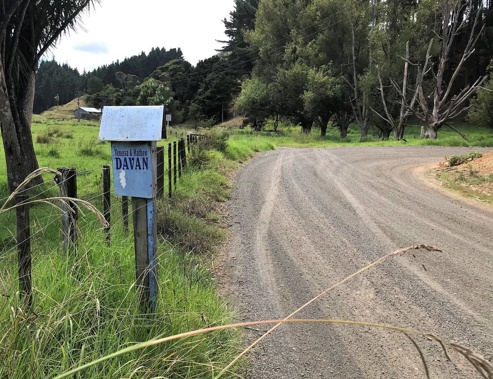
Weeks before Dave Davan died, he gave police the murder weapon used to kill him. His son Conrad says he also told police the name of the man he reckons killed him.
It was Saturday, November 13, when Davan sat down to dinner and poured a glass of port from one of two bottles that had turned up in his letterbox two kilometres down dead-end Puhata Rd in Herekino, Northland.
The bottles had been discovered a few days earlier and just one was left by Saturday. Twisting the cap, Davan could tell the seal had been broken but, no matter, he poured a glass.
He hadn't started the second glass before he hit the floor … shitting and spewing," says Conrad, a 38-year-old farm manager at nearby Sweetwater.
The symptoms match those for those who ingested paraquat weedkiller, the poison police talked of when interviewing witnesses weeks later. It begins with swelling to the mouth and throat, followed by "nausea, vomiting, abdominal pain, and diarrhoea", which may become bloody.
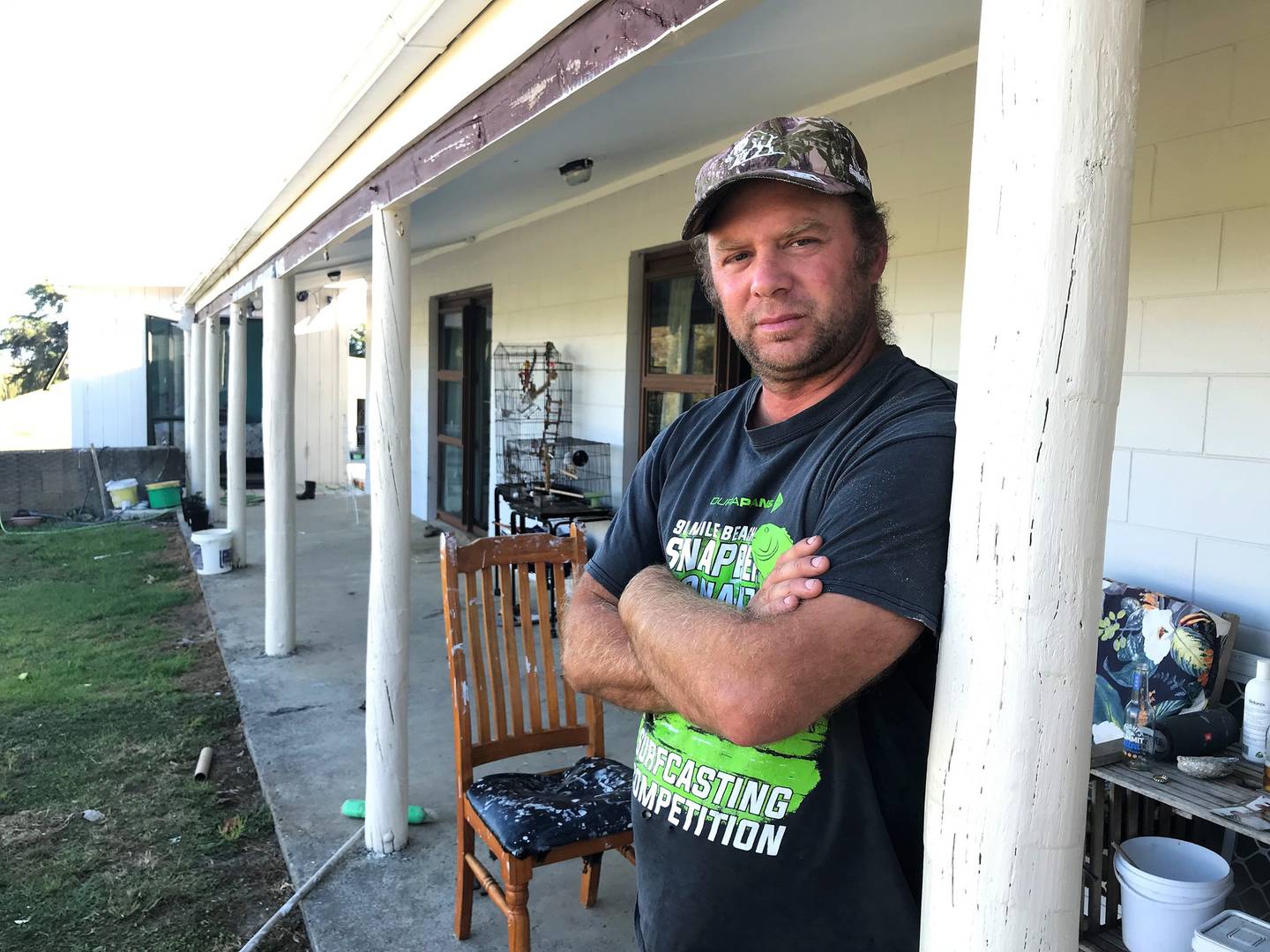
Conrad Davan, 38, pictured at home at Sweetwater, Awanui, watched his father Dave Davan's slide towards death after drinking poisoned port. Photo / David Fisher
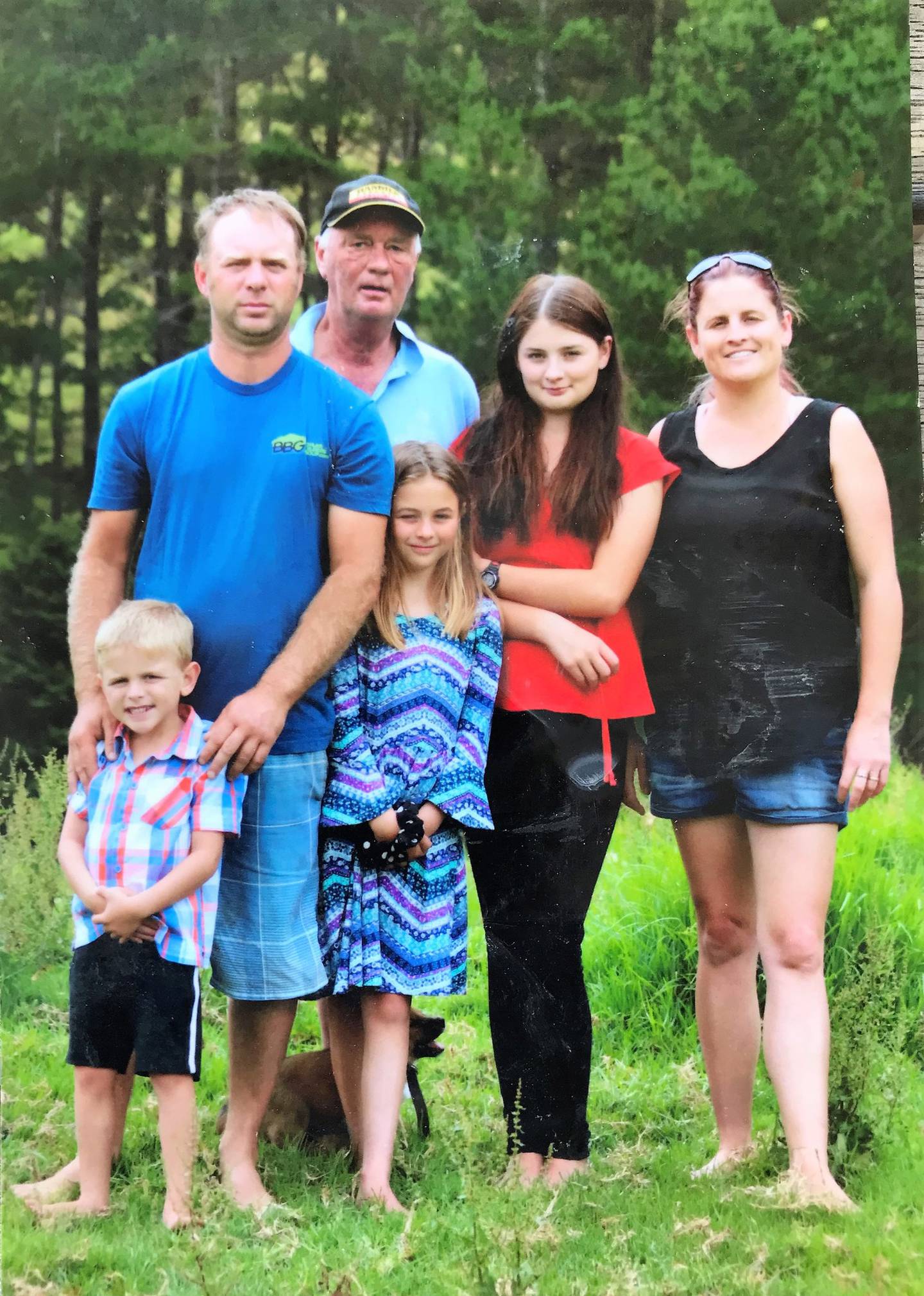
Dave Davan, at rear, with son Conrad and wife Dana Collard, and grandchildren Kelly-Ann, Isabelle and Bostin. Photo / Supplied
The next morning about 7.30am, Dave set about making sure someone knew what had happened.
"He rung me first thing," remembered Conrad, "to say that if he dies, he suspects he's been poisoned."
It might seem a strange conclusion to jump to but, as Conrad points out, it wasn't the first time Davan had suffered through something like this. He suspects there had been an earlier attempt to poison his dad.
A few years earlier, similar symptoms led Dave to put his affairs in order. He felt sick enough to think he might die. And as Conrad tells this and thinks on it, he's not so sure the police know about that.
This time, the poisoning was severe and ultimately fatal. It took Dave nearly a month to die aged 67, and for much of that he couldn't speak or even connect with the world he was leaving.
Dave was a hard man, a clever man, a gentle man, a rough man. He was also a flawed man with a weakness for the bottle.
If it is the case, as his son Conrad and brother Grant, 65, believe, that paraquat in a bottle of port was the murder weapon, then Dave was killed by someone who knew him well.
Whoever it was, they knew the brand of port he liked to drink and they knew Dave liked a drink enough not to think twice about it.
"Dave was a drinker," says Grant. "If someone gave him some wine, then he would drink it."
The road to nowhere
Once, Herekino was on the way to somewhere. It had a dairy factory, timber mills, two churches, a butcher, a general store and a hotel.
Now there are easier ways to get everywhere and Herekino is less a town than just an intersection.
Back then, the road north used to turn west to avoid the high hills at Mangamuka. It travelled through sharp ridges and long valleys to Broadwood then Herekino and through the gorge north to Kaitaia.
In 1961, State Highway 1 was sealed through the Mangamuka Ranges. Never again would anyone have travel to Herekino if they didn't need to, and the town withered to nothing more than a school and a pub that opens only a handful of days each week.
When Dave's brother Grant speaks of Herekino, he does so with an undertone that spells out the family's links with the land and its people. Dave Davan's life ended close to where it all began for his bloodline in New Zealand.
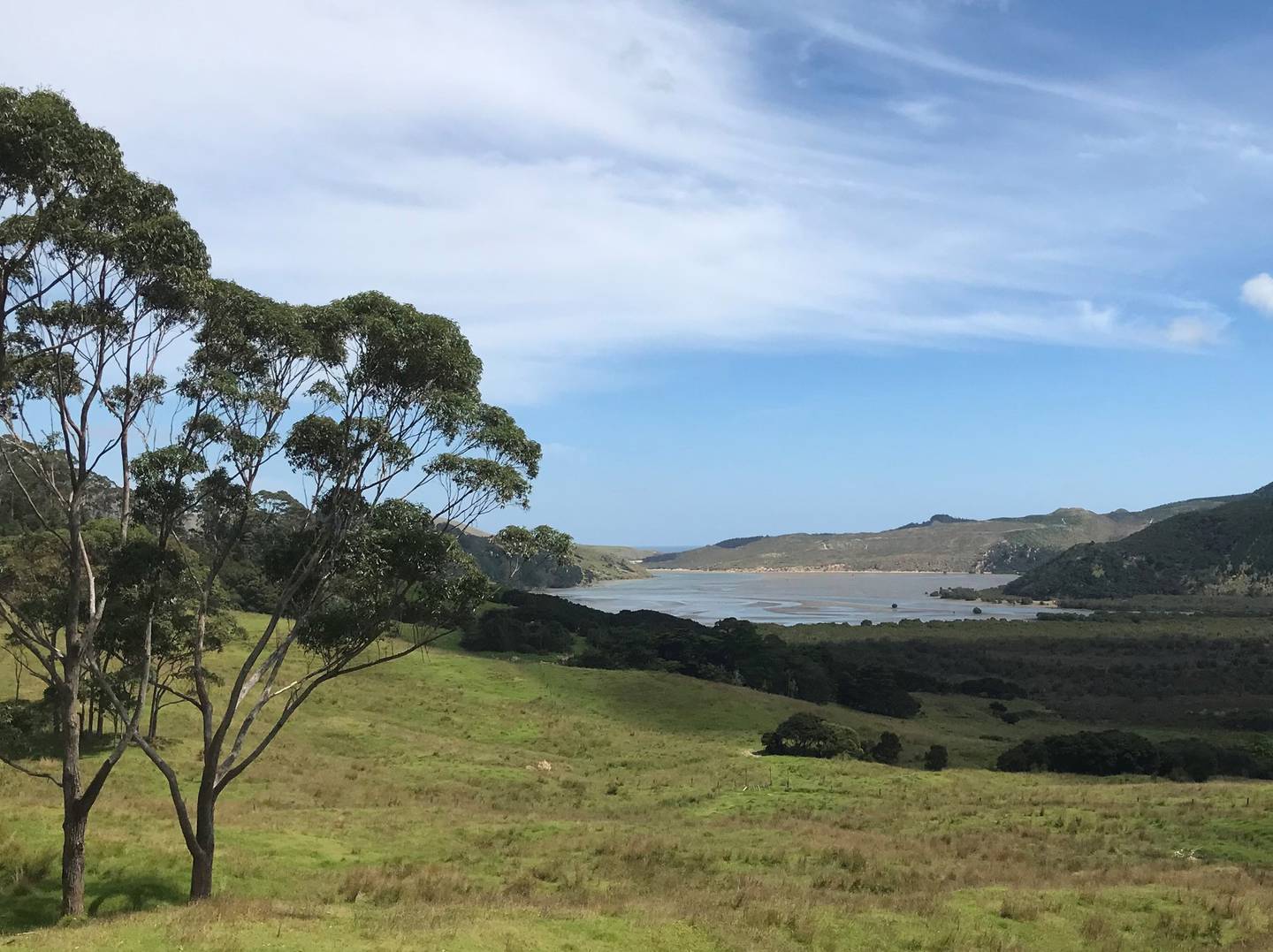
Herekino Harbour, the northernmost harbour on New Zealand's west coast. Photo / David Fisher
The Herekino branch of the family traces its roots to Northern Ireland through cousins James and Eliza Geddes, who married in 1877. In 1886 they set out for New Zealand – a time when passage was free to those planning a life in the new colony through Government-backed land purchases on offer to those willing to wrestle wilderness into farmland.
James and Eliza Geddes arrived in Onehunga then went north with about 40 other pioneering families on a ship that nosed into Whangape Harbour on the west coast and up the Awaroa River until it could go no further.
There they disembarked onto mudflats and Eliza Geddes was carried ashore by one of the Māori/English Dunn whānau. Pregnant again, fresh from Northern Ireland, Eliza rested in the arms of a famously gigantic Māori man who waded through mud to the shore.
James and Eliza Geddes marched north into a valley that later had Puhata Rd running up its belly. James Geddes built a house, cleared the land and over the years picked up properties abandoned by others.
It was Geddes who brought the first cow and sheep to the area. When the Herekino Dairy Factory opened in 1910, he had a small herd ready to be milked. They had 13 children in New Zealand, including sons who went away to World War I, one of whom returned missing a limb.
Among the children was a girl named Eliza, after her mother, who married Arthur Gregory. They named their daughter Vera, who in 1948 wore a dress of heavy satin with a skirt flaring to a train when she married Keith Davan, an electrician, of Hamilton.
Keith and Vera Davan moved to Kaitaia where their four boys – Greg, Dave, Grant and John – were raised on faith, and stories of Herekino. Grant recalls he and Dave cycling there most weekends, rattling their bikes down the metal road of Herekino Gorge to visit great-aunt Ida in Broadwood or help with docking and shearing of sheep at Herekino.
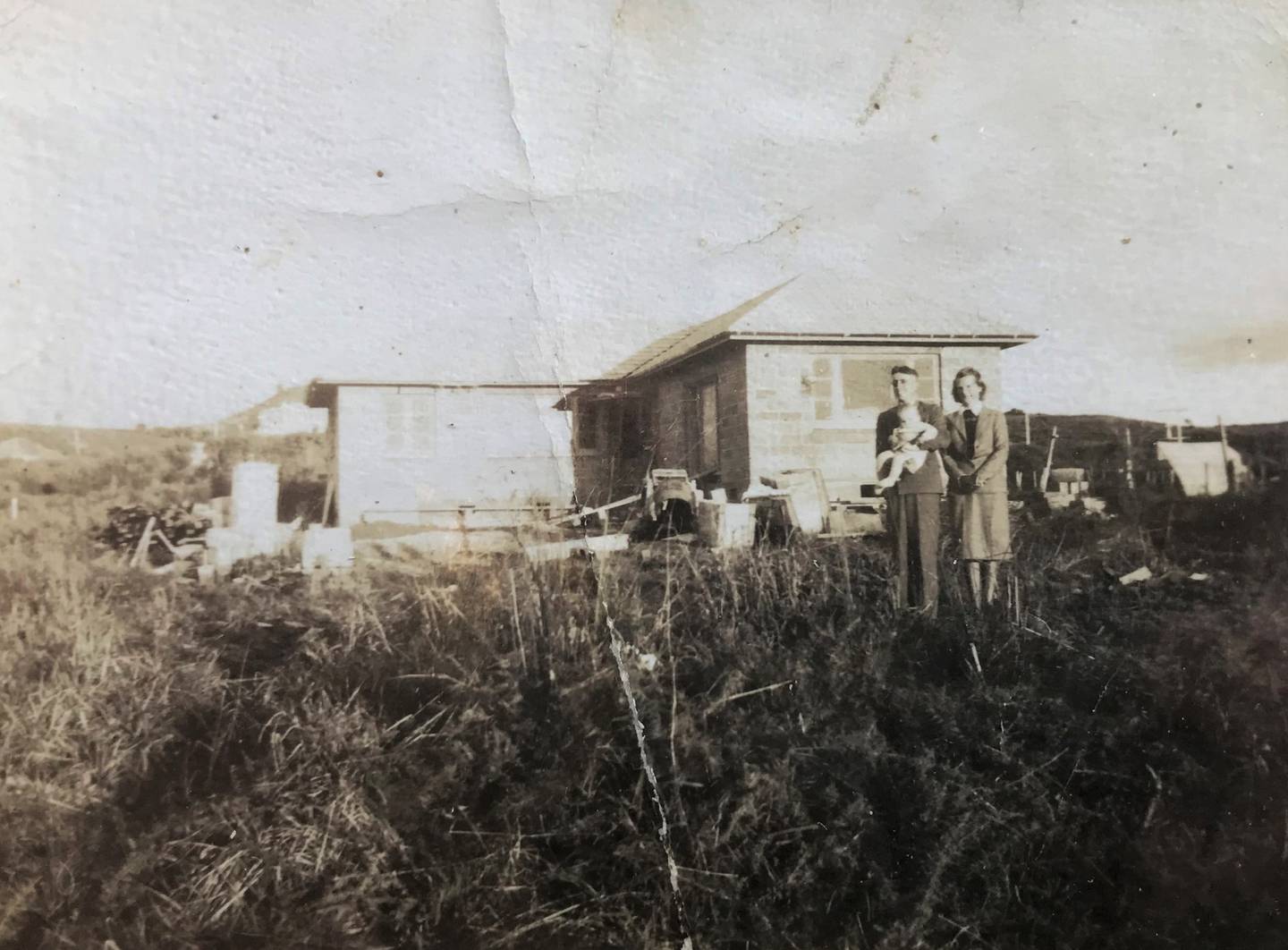
Keith and Vera Davan raised their three boys in Kaitaia after marrying in 1948. Photo / Supplied
Ida Gregory paid them 50c an hour to clear scrub. "Oh, we thought we were going to crack it," Grant laughs with the memory. "It used to cost us more for spaghetti and our Weet-Bix."
Shearing became Dave's life's work. He later married Shirley and worked the shearing circuit, lining up projects on his return home to develop farms at Puhata Rd and Sweetwater near Awanui. He and Shirley had three boys who all still live in the area – Conrad and Mathew at Sweetwater and Angus in Herekino.
When Dave and Shirley split, she moved back to Sweetwater and he stayed at Herekino in a community of people he'd known as boy and man. The house in which he died was close to where James Geddes first put a roof over his and Eliza's heads.
Poisoned port in letterbox
"First I knew about it, he rang up from Kaitaia Hospital to tell my missus to go and feed the chooks and dogs," says Grant Davan, explaining how he found out about the poisoning.
Grant lives at the top of Puhata Rd, about 2km from Dave's place. His pleasure in telling a yarn is a good fit with his backpacking business.
"He could talk still, then. He said he'd been poisoned. He had dinner, drank the wine and down," Grant Davan brings a hand down with a slam to show how his brother hit the floor. "Shitting and spewing all the way."
Dave had told the story about two bottles of port left in his letterbox, just as he told Conrad and the police officer who visited the day after he drank the poison.
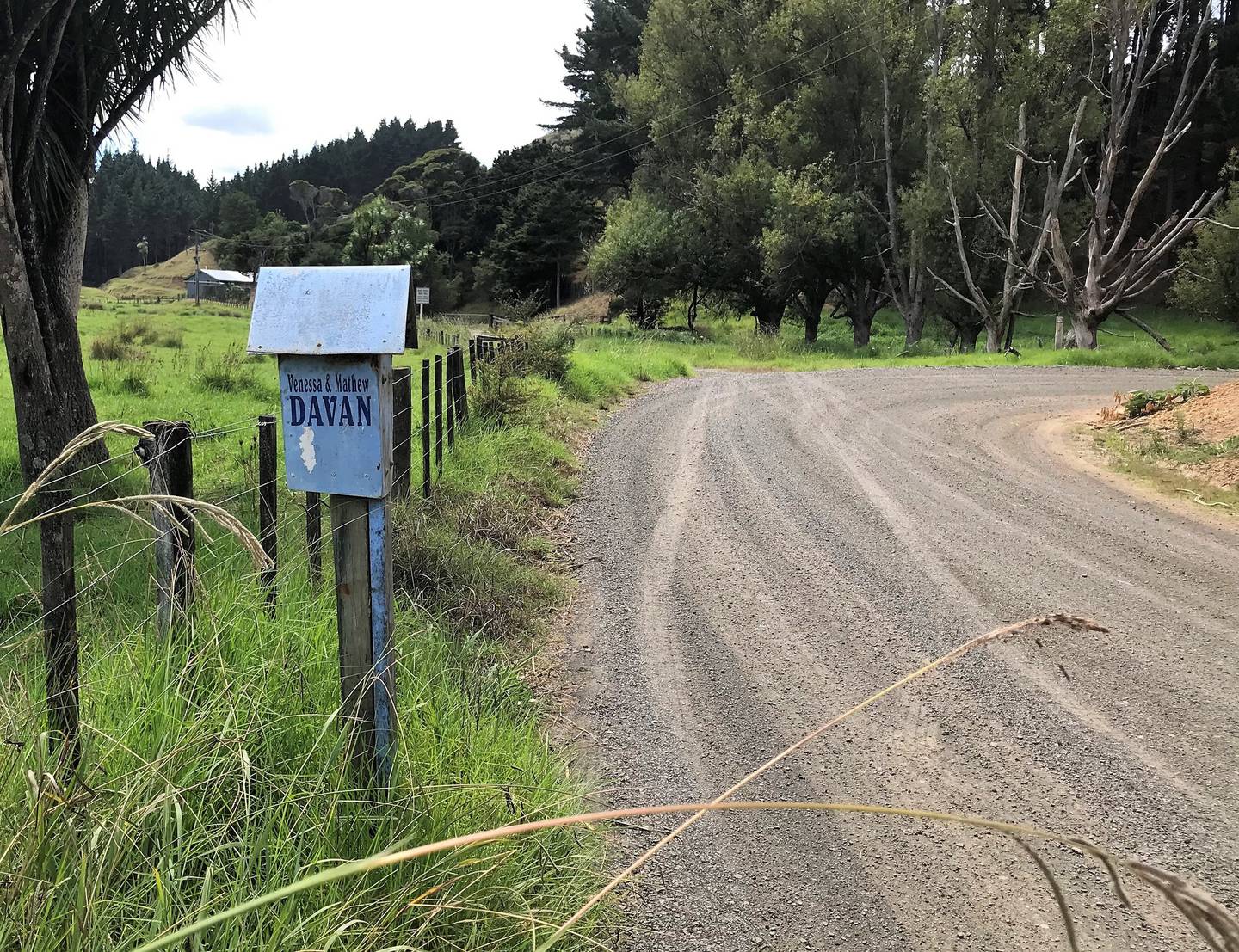
Dave Davan's letterbox – carrying the names of son Mathew and daughter-in-law Vanessa – on Puhata Rd where he found two bottles of port. Photo / David Fisher
The port probably wasn't an unexpected find. Herekino runs on a sort of barter and goodwill system. Dave had about 50 chickens and would drop off eggs to whoever brought him a carton. Someone might fix one of Grant Davan's vehicles and he'll leave half a pig next time he's hunting.
After his torrid night on November 13, Dave made that phone call to Conrad, telling his son he'd been poisoned. Then he drove to Kaitaia Hospital where they took note of the symptoms, took some blood samples and sent him on his way.
At some stage Dave rang the police. The next day an officer visited his home and Dave handed over a preserving jar containing some of the port. Conrad reckons he also named the person he believed left the port in the letterbox.
Police said: "A sample of wine was provided to the police officer, however Mr Davan declined to provide police with the two bottles in question and did not wish to provide a statement at that time."
That's right, says Conrad, because his dad wasn't sure how police would handle the case. And – given he thought he was in danger – he was worried about what would happen when officers left his farm. When police went back to Kaitaia, anyone who had spoken to them would be much closer to the killer than a 111 call could do anything about.
So, Dave hid the bottles and set about trying to get himself healthy, just like the years after his heart attack when he'd felt mortally unwell.
"He was crook," says Conrad, "almost like a mystery illness".
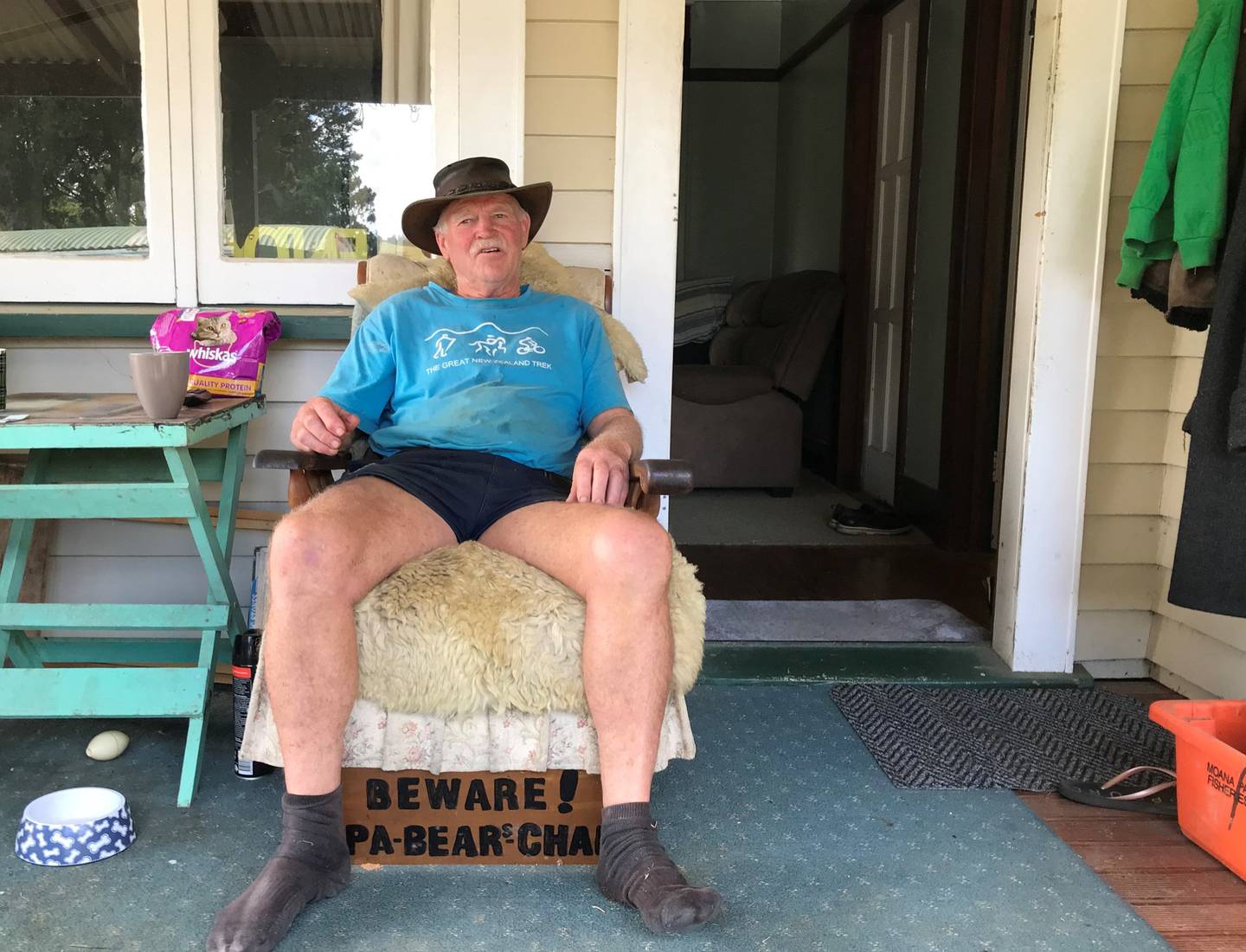
Grant Davan, whose older brother Dave died after drinking port tainted with weedkiller. Photo / David Fisher
The symptoms weren't heart-related, says Conrad. It was more about his guts: "He needed to go toilet about 10 times a day. He didn't get out much because of that."
Dave was determined to get well and nothing actually helped. Then, one day, it stopped and he just got better.
"It does make me think twice," says Conrad. "Especially when I was in hospital reading [Dad's medical] notes. Why was he so crook two years ago? His health was that bad then that he was saying he might not have long.
"Then, over a year, his health improved and this mystery illness disappeared."
How Dave Davan died
So here they were, Dave crook again and telling his son, his brother and the police he had been poisoned.
"He'd been back and forward from the hospital," says Conrad of the days from Sunday through to Wednesday, when Dave was admitted with kidney failure.
That was the last day they spoke, Conrad recalls. He visited him during the day and then rang later so his and partner Dana Collard's three children could speak to their granddad. Dave declared over the phone: "I'm still alive," and those were pretty much the last words he had to say.
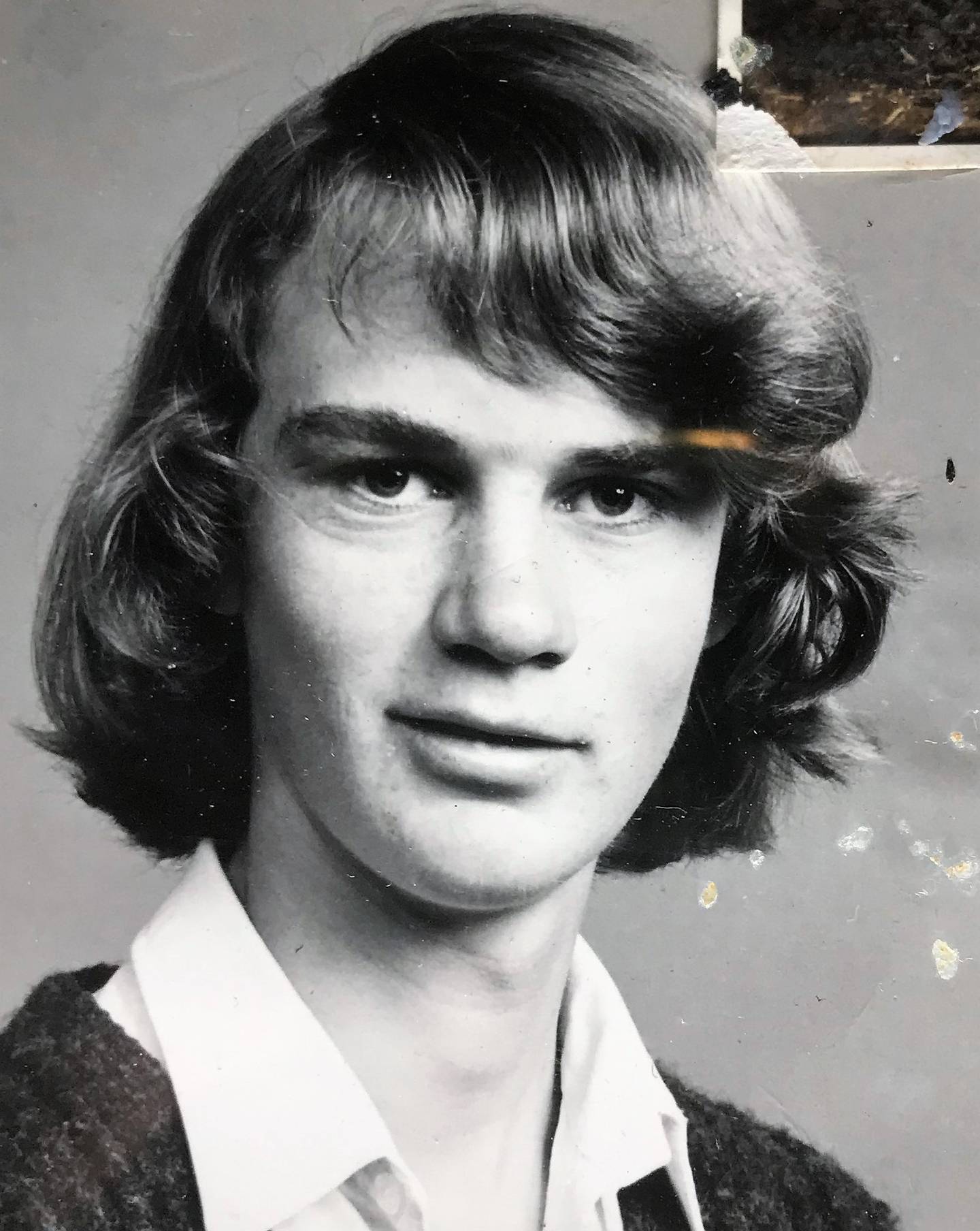
Dave Davan grew up in Kaitaia then struck out as a shearer and Herekino farmer. Photo / Supplied
When Thursday came, he needed Whangarei Hospital's intensive care unit. For Conrad, his dad's decline was moving faster than he could comprehend. Rather than visiting at Kaitaia Hospital, he found himself on the road to Whangārei on Friday morning.
Walking into the ICU, he expected to see his dad sitting up in bed with a wan smile and a sorry wave. Instead, he saw him hooked up to machines with lines into veins and pipes connected to his body.
"There was no warning. It was a shock. There's all these hoses sticking out of him."
Dave's oxygen levels had been falling, then "once they looked at his lungs, his lungs were destroyed. He was in a real bad way".
"He was struggling to get his oxygen levels high so he'd gone onto the ventilator. They were telling me the ventilator was maxed-out. Any more and it would burst his lungs."
Since Dave went into hospital, Conrad had been turning up at Kaitaia Police Station to get an officer to come out to Herekino to recover the hidden bottles of poisoned port.
"My dad's been poisoned," he told the receptionist. He recalls standing at the front counter of the police station saying: "This is f***ing serious."
There was no one to see him, he was told.
"If someone went 'bang' with a gun, they'd have 30 cops there. But if it's a silent assassin, you don't hear from them for two weeks, which is frustrating."
In the end, Conrad got the bottles down to Whangārei hospital so hospital staff could "run tests to see what was in the bottle, to save his life".
"By then, he was in intensive care and they didn't have that sort of capability. It was all a waste of time in the end."
He reckons that's about when the hospital notified police, adding to Dave's complaint and his own efforts.
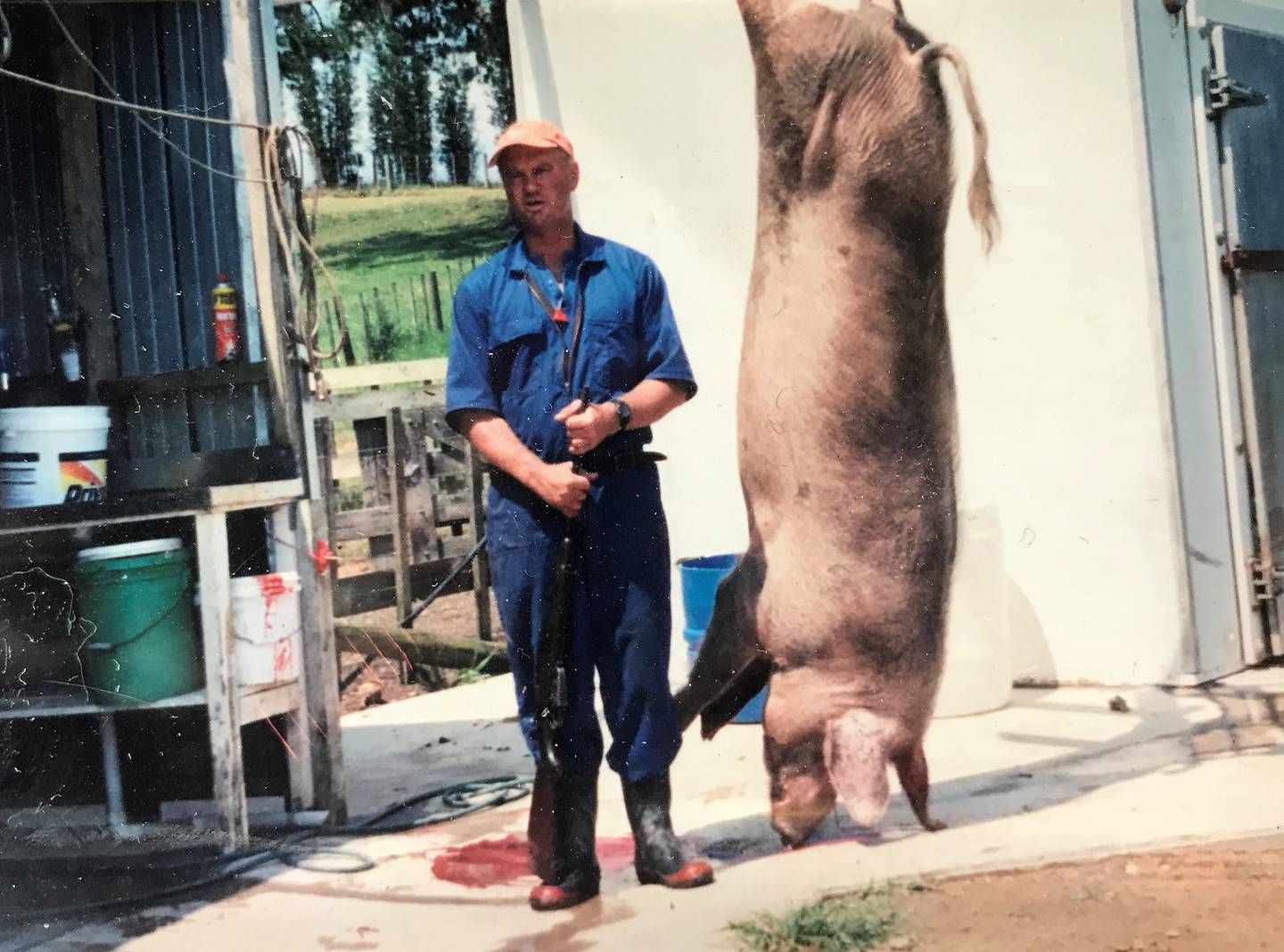
Dave Davan with a record pig. Photo / Supplied
The first call from detectives came when Conrad was driving south to Auckland City Hospital when Dave was transferred with "extracorporeal membrane oxygenation" equipment – a last-resort life support machine that did his dad's breathing for him.
When the call finally came through from detectives, "the police's chance of speaking with Dad had gone".
The day before Dave died, those to whom he mattered took part in an online video call. It was a chance to ask questions of doctors and make a plan. The plan, at that stage, was to decide in a few weeks if life support should be turned off.
Dave got ahead of that decision. He died on December 9. It was 26 days after he drank the poisoned port.
Burying Dave and the 'crafty' murder
Dave Davan came back from Auckland to Puhata Rd, Herekino, dressed in clothes supplied by Geards Funeral Home in Kaitaia.
For two days Dave lay at the house. If it were a marae, says Grant, there would be the tokotoko to pass from one person to another. "To tell stories, to settle disputes."
A shearing handpiece placed with Dave became the talking stick. "And we passed the shearing handpiece around." The adults said what they had to say and the farm workers' children "all got up and had their say" and sang songs.
Dave's coffin went onto the back of Grant's Commer truck, according to the instructions left when the "mystery illness" assailed him a few years before. "All the kids were on there with him and some of the worker girls."
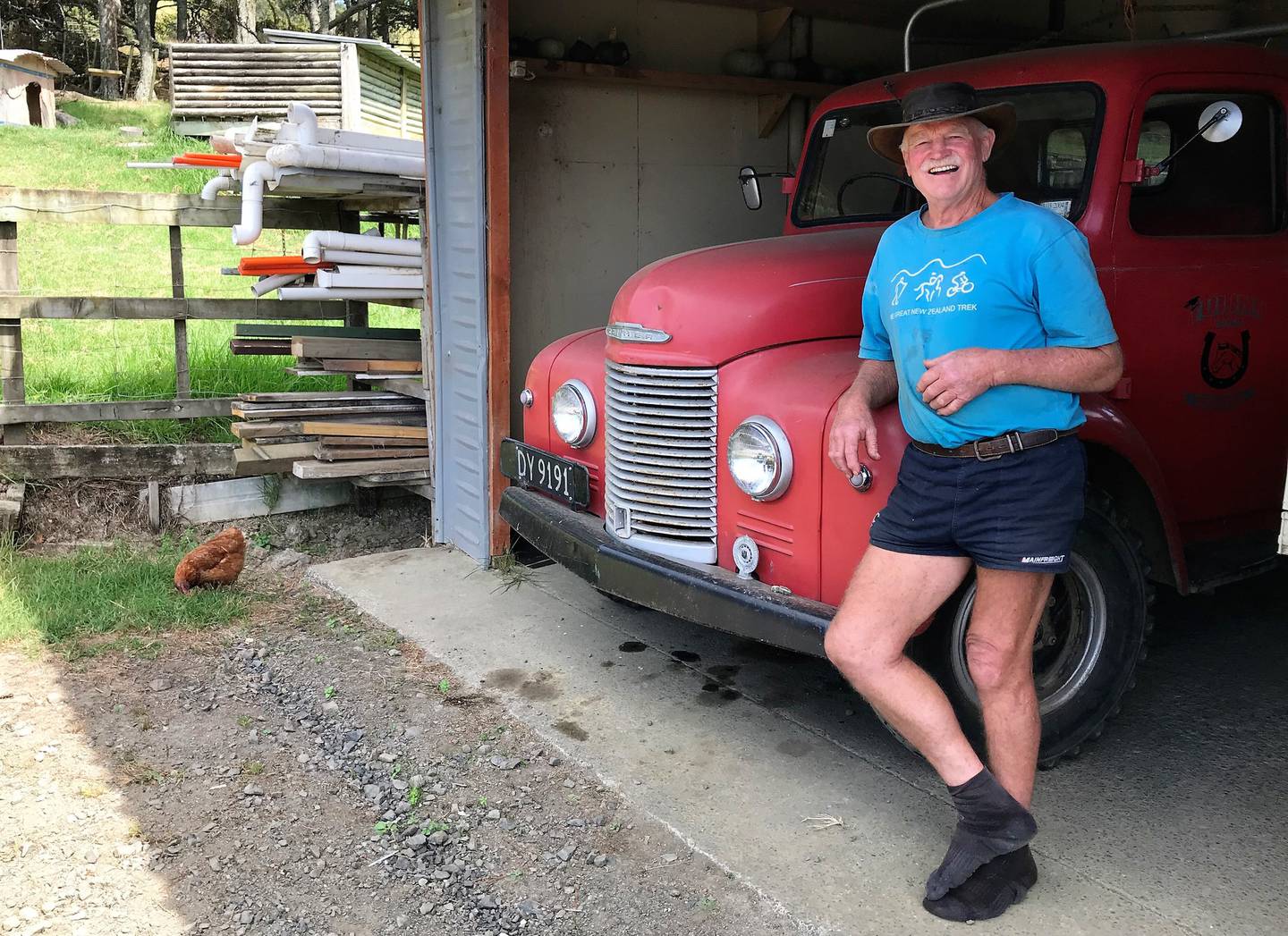
Dave Davan wanted to be carried to his grave on his brother Grant's Commer truck. Photo / David Fisher
They drove him north, up Ninety Mile Beach to Waipapakauri where parents Keith and Vera Davan were buried.
"He had his plot organised," says Grant. "He told us what hymns he wanted."
And since then, they've waited for an arrest. They've waited to see if the police's answer to the question of Dave's death is the same as the murdered mans.
As the investigation has progressed - four months now – Conrad has rationalised his frustration at a perceived lack of action.
"They need facts to launch a case," he says. "They can't throw resources at it unless they know. They couldn't do anything until tests came back."
Conrad has been interviewed by detectives. So has Grant. The pair of them, separately, tick through the names of others and what they might, or might not, contribute.
When they first spoke to Conrad, they asked if Dave might have taken his own life. "No way," he said. "He had an incubator with pheasant eggs and they weren't far off hatching and he was all excited about it."
The pheasant plan was a project born of a desire to raise the birds to roam semi-wild around the property. It was one of those inspirations that engaged the curious intelligence that saw Dave develop concepts others could not.
When Conrad speaks to this, you can see him looking at a small part of the large hole his dad's death has left.
"There's all sorts of things that come to mind about him," he says. "What I got from my old man was everything. His brain just worked differently. He just knew so much about everything."
As a father to young boys, Dave wasn't about as much as others might have been. Shearing took him away and the farm consumed his return. "And if he wasn't working, he'd be having a wine down the social with his mates."
These recent years saw it paid back and then some. As age and ill health slowed Dave, he spent time on those short-changed in earlier years. Conrad talks about his dad with a sense of wonder at the breadth and depth of his knowledge about how the physical world worked.
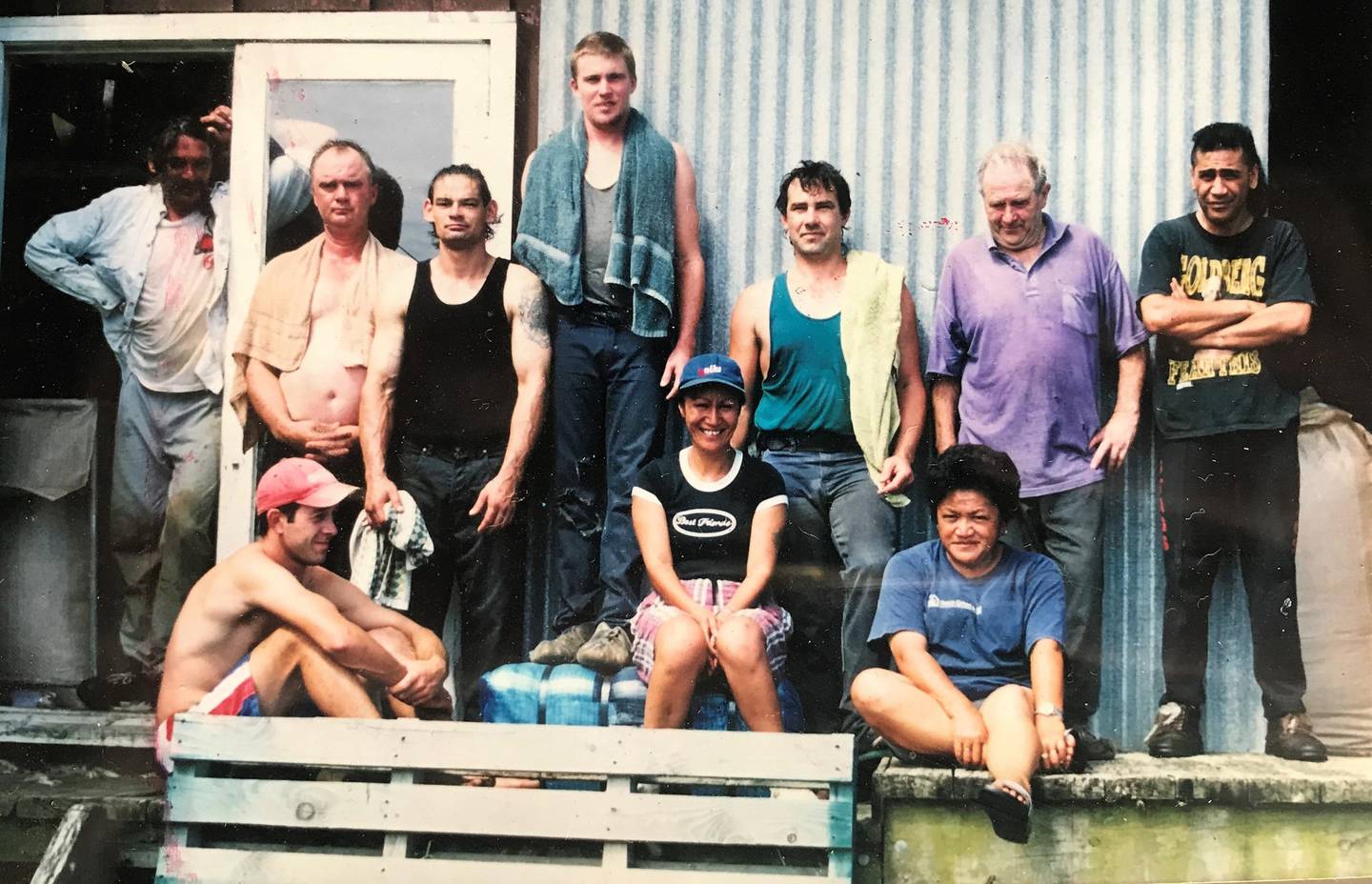
Dave Davan (standing, second left) spent much of his working life on shearing gangs. Photo / Supplied
He could build anything, fix anything, hunt anything. "He just knew," says Conrad. "All these little things he taught you … when it comes to things these days, I'm quite well set up. I know how to fix my truck, shear a sheep, kill a beef, drive a tractor."
It's a list that goes on. Anything you might pay someone else to do around the farm or house, Dave had worked out how to do it himself and passed on that knowledge.
At the beginning of March, police told the world what much of Herekino knew - that Dave had been poisoned ahead of his death and it was now a homicide inquiry.
"It's only out in the media now but it's been with us for months," says Conrad. He knows detectives have their work cut out.
"Having an idea and having the evidence to lock someone up is two different things. I have faith in the detectives. It's not their first rodeo, you know."
It's difficult, too, because it's not straightforward. "People get bludgeoned or run over. This is different. This is a crafty thing."
- by David Fisher, NZ Herald
Take your Radio, Podcasts and Music with you









